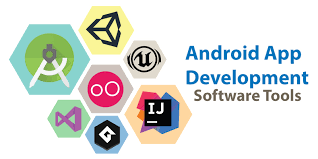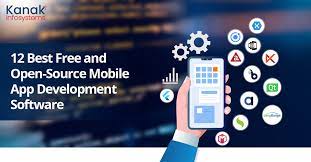Mastering JavaScript: A Comprehensive Tutorial for Beginners
The Ultimate JavaScript Tutorial for Beginners
JavaScript is a versatile and powerful programming language that is essential for web development. Whether you are a beginner looking to learn the basics or an experienced developer aiming to enhance your skills, this tutorial will guide you through the fundamentals of JavaScript.
Getting Started with JavaScript
To start coding in JavaScript, all you need is a text editor and a web browser. You can write JavaScript code directly within an HTML file using the <script> tag or create a separate .js file and link it to your HTML document.
Basic Syntax and Variables
JavaScript uses a simple syntax that is easy to understand. You can declare variables using keywords like var, let, or const. Variables can store various data types such as numbers, strings, arrays, and objects.
Control Structures and Functions
Control structures like if statements, loops (for, while), and switch cases allow you to make decisions and control the flow of your code. Functions in JavaScript are reusable blocks of code that perform specific tasks.
DOM Manipulation and Events
The Document Object Model (DOM) allows you to interact with HTML elements on a webpage dynamically. You can change content, style, or behavior using JavaScript. Events like click, hover, or submit enable interactivity with users.
Asynchronous Programming and APIs
JavaScript supports asynchronous programming through callbacks, promises, and async/await functions. You can make HTTP requests to external APIs to fetch data and update your webpage dynamically without reloading it.
Conclusion
Congratulations! You have completed the basics of this JavaScript tutorial. Practice coding regularly, explore advanced topics like ES6 features or frameworks like React or Node.js, and keep building exciting projects to enhance your skills further.
7 Essential Tips for Mastering JavaScript: A Beginner’s Guide
- Start with the basics
- Practice coding regularly to improve your skills.
- Utilize online resources like MDN Web Docs and W3Schools for reference.
- Experiment with small projects to apply what you’ve learned.
- Learn about functions and how to use them effectively in your code.
- Understand concepts like loops, arrays, and objects for more advanced programming.
- Stay patient and persistent – learning JavaScript takes time and practice.
Start with the basics
Starting with the basics is crucial when embarking on a JavaScript tutorial. By understanding fundamental concepts such as variables, data types, and control structures, beginners can build a solid foundation for their coding journey. Mastering the basics not only lays the groundwork for tackling more advanced topics but also instills confidence and clarity in programming logic. With a strong grasp of the fundamentals, learners can progress smoothly and effectively navigate the complexities of JavaScript development.
Practice coding regularly to improve your skills.
To enhance your proficiency in JavaScript, it is crucial to practice coding regularly. Consistent practice not only reinforces your understanding of the language but also helps you develop problem-solving abilities and programming techniques. By working on coding exercises, building small projects, and participating in coding challenges, you can sharpen your skills and gain confidence in writing efficient and effective JavaScript code. Remember, practice makes perfect when it comes to mastering JavaScript programming.
Utilize online resources like MDN Web Docs and W3Schools for reference.
When diving into the world of JavaScript programming, it is highly beneficial to utilize online resources such as MDN Web Docs and W3Schools for reference. These platforms offer comprehensive documentation, tutorials, and examples that can help clarify concepts, provide solutions to coding challenges, and deepen your understanding of JavaScript functionalities. By leveraging these valuable resources, you can enhance your learning experience and gain the knowledge needed to become a proficient JavaScript developer.
Experiment with small projects to apply what you’ve learned.
To truly solidify your understanding of JavaScript concepts, it is highly recommended to experiment with small projects that allow you to apply what you’ve learned. By working on practical tasks, such as creating interactive web elements or building simple applications, you can reinforce your knowledge and gain valuable hands-on experience. These small projects not only help you retain information better but also boost your confidence in using JavaScript effectively in real-world scenarios. So, roll up your sleeves, get creative, and start coding to see the magic of JavaScript come to life through your own projects.
Learn about functions and how to use them effectively in your code.
Understanding functions is crucial in mastering JavaScript programming. Functions in JavaScript are reusable blocks of code that perform specific tasks, allowing for better organization and efficiency in your code. By learning how to define, call, and utilize functions effectively, you can enhance the readability and maintainability of your codebase. Embracing functions empowers you to break down complex tasks into smaller, manageable units, promoting code reusability and modularity in your projects.
Understand concepts like loops, arrays, and objects for more advanced programming.
To advance your programming skills in JavaScript, it is crucial to grasp fundamental concepts such as loops, arrays, and objects. Loops allow you to iterate through data efficiently, while arrays provide a structured way to store multiple values. Understanding objects helps you organize and manipulate complex data structures effectively. By mastering these concepts, you can enhance your ability to write more sophisticated and efficient code in JavaScript.
Stay patient and persistent – learning JavaScript takes time and practice.
Learning JavaScript is a journey that requires patience and persistence. It’s important to stay committed to the learning process as mastering this programming language takes time and practice. By dedicating yourself to consistent learning and practice, you will gradually build your skills and confidence in JavaScript development. Remember, every challenge you encounter is an opportunity to grow and improve your understanding of JavaScript. Stay patient, keep practicing, and you will see progress over time.






